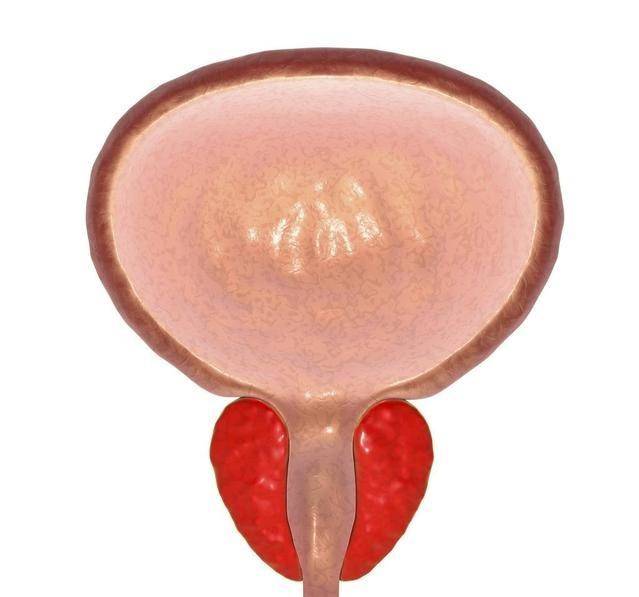In a man’s body there is a very special organ, most organs with age will eventually shrink, but this organ is different, it grows throughout life, can be said to live long and prosper. In childhood, it is small, grows rapidly in adolescence, and in middle and old age, connective tissue increases, often forming senile hypertrophy, this organ is the prostate.
The prostate is a male-specific sexual gland organ, the “portrait” of the prostate is below, which in shape somewhat resembles an inverted chestnut. A normal prostate weighs only about 20g, equivalent to the weight of a grape.
With age, the prostate continues to enlarge, forming benign prostatic hyperplasia, also known as benign prostatic hyperplasia, a benign disease. The prostate “resides” under the bladder, so benign prostatic hyperplasia can cause a series of problems such as frequent urination, urgency, incomplete urination, urinary incontinence, urinary interruption, waiting to urinate, and weak urinary stream. Most patients with age have increasing difficulty in urination, frequency of urination is an early symptom, increasing frequency of nocturnal urination, but with a small amount of urine each time.
Benign prostatic hyperplasia typically appears in men over 45 years old, symptoms present at 50 years old, and are very noticeable by age 60. All men have varying degrees of benign prostatic hyperplasia, it’s just a matter of the severity based on age. The graph below shows the International Prostate Symptom Score (IPSS) table, self-test based on daily performance↓↓↓
Note: A total score of 0-7 points indicates mild, 8-19 points indicate moderate, and 20-35 points indicate severe. If it is moderate or severe, it is best to go to a formal hospital and see a specialist immediately.
Doctors use a finger inserted into the patient’s rectum for palpation, without any auxiliary equipment, this is a digital rectal examination, also known as a rectal examination. It can help detect prostate enlargement or prostate cancer in male examiners. Doctors suggest men over 50 years of age should undergo PSA testing and rectal exams once or twice a year, if there is a family history of prostate cancer, then PSA testing and rectal exams should start at 40 years old annually, to aid in early detection and treatment.
Is there a way to prevent prostatic hyperplasia?
There is no hundred percent method to prevent benign prostatic hyperplasia, but by doing the following, it can more or less prevent or delay its occurrence.
Exercise more and avoid sitting for long periods.
Long periods of cycling or driving can cause congestion of the prostate, so try to reduce it as much as possible! Prolonged cycling, the bicycle seat repeatedly stimulates the prostate, causing congestion and leading to inflammation. Over time, this can increase the risk of benign prostatic hyperplasia.
More information
What should you do if a patient with cirrhosis gets pregnant? Can they only choose to abort?
If these 3 abnormalities appear, liver cancer may be approaching, the earlier you get checked, the better.
For individuals with gout, besides alcohol, these 3 types of food are the most feared, the more they eat, the more pain they feel!
One place on a man, live long and grow old, but bigger is not better!


